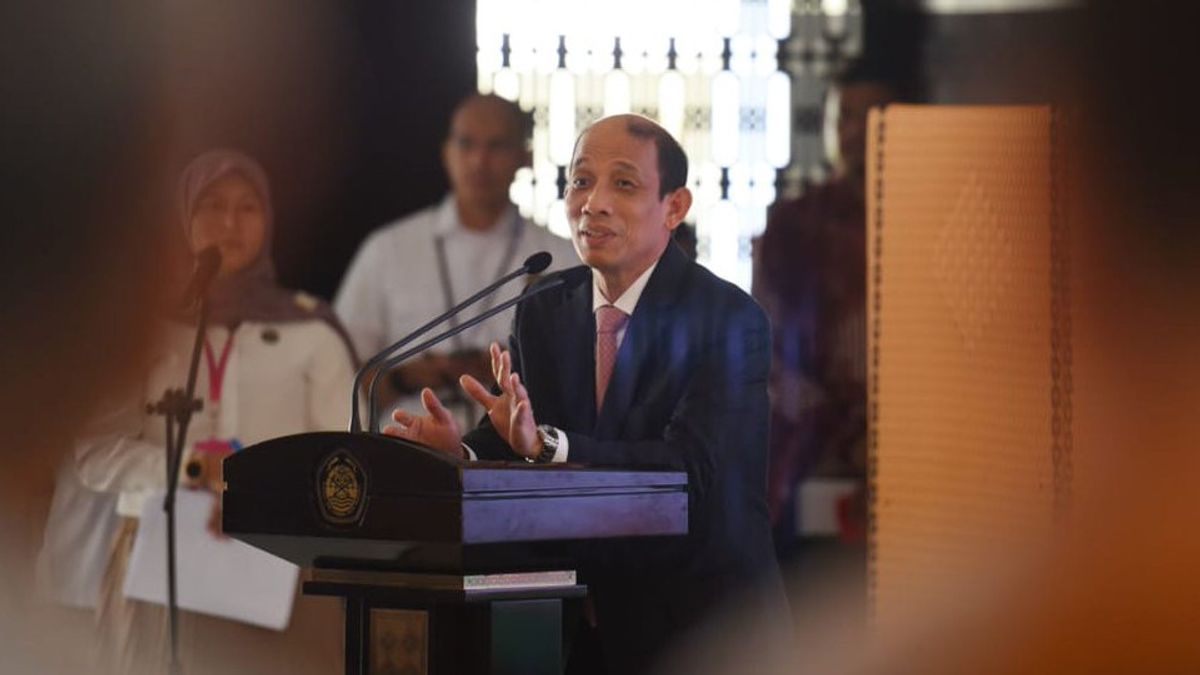JAKARTA - Former Minister of Energy and Mineral Resources (ESDM), Arcandra Tahar, said that today many oil and gas companies in the world are experiencing dilemmas in carrying out business activities. This is because the trend of low prices in the pandemic era is not proportional to production costs.
"The oil and gas business sector become a line of business that requires considerable costs. In addition, the risks faced are also not small", he said on Sunday, May 23.
According to Arcandra, there are two main risks faced by corporations in this sector. First, the production risk of an exploration field that does not go according to the original plan. Then the second is the risk from the sales side with price fluctuations.
"No institution, company, and country leader can predict the direction of oil prices in the future. Like at the beginning of the COVID-19 pandemic where oil prices were negative, the first event in the history of world oil", he said.
Arcandra added that the fall in oil prices made the world's oil and gas businesses reorganize their business strategy. In fact, he continued, many companies upstream and downstream oil and gas are experiencing bankruptcy.
"This is due to the high operational costs that are not comparable to their income. In addition to low price factors, the pandemic makes the world's oil and gas consumption decrease", he said.
So in the current condition, how do oil and gas companies prepare their businesses?
"Of course many of the world's oil and gas companies will consolidate their business. The sale of oil and gas fields is a natural thing to do at this time. In addition, mergers and acquisitions among oil and gas companies will often be heard in the last two years", he explained.
It is also mentioned that to manage risk, oil and gas companies will reorganize their investment portfolios. This strategy is intended so that the sector's business entities can focus on managing the financial performance side, before deciding to continue the existing investment.
"Oil and gas companies will also focus on easier operating areas with low production costs, while difficult areas will be delayed. Of course, this will have an impact on the use of exploration technology that will be optimized to get revenue", he added.
- https://voi.id/ekonomi/53275/bujuk-nelayan-bayar-pnbp-demi-kesejahteraan-menteri-trenggono-hati-saya-menangis-lihat-nelayan-tidak-maju
- https://voi.id/ekonomi/53184/syekh-di-qatar-makin-tajir-indosat-sukses-raup-laba-bersih-rp172-miliar-di-kuartal-i-2021
- https://voi.id/ekonomi/53253/pemerintah-prioritaskan-damri-dan-transjakarta-sebagai-angkutan-umum-bertenaga-listrik
Furthermore, Arcandra revealed that if there are world oil and gas companies that sell their assets or production fields in a country does not mean the business climate in the country is not attractive anymore.
"Because as long as the investment promises maximum profit and ensures business security in the long run, oil and gas companies will still come to invest", he said.
At the end of his presentation, professionals who had tasted the bureaucratic chair were hoping the pressure on the oil and gas industry quickly ended as the handling of the pandemic began to be controlled.
"Hopefully the recovery can happen soon so that it can increase investment so that oil and gas fields that are delayed development can run and jobs are available even greater. God willing", Arcandra concluded.
The English, Chinese, Japanese, Arabic, and French versions are automatically generated by the AI. So there may still be inaccuracies in translating, please always see Indonesian as our main language. (system supported by DigitalSiber.id)












